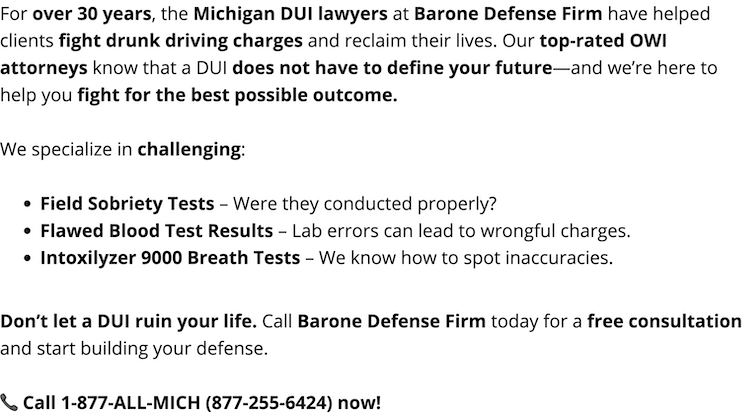Statements to the Police in a DUI Stop
If you are pulled over on suspicion of drunk driving, you need to be aware that statements you make to the police during the traffic stop may be used against you during trial. Once you have been taken into custody, however, the rules change. In order to use any statements you made while in custody against you in court, the prosecution must show that you were read your Miranda rights.
Miranda Rights During a Traffic StopAlthough you are technically in police custody during a traffic stop, the police are NOT required to read you your Miranda rights during the stop, and any statements you make during the course of the stop can be used against you. This rule also applies during the administration of sobriety tests and throughout booking.
Being in police custody is not the same as being under arrest. Police officers are usually pretty clear about placing someone under arrest; the use of handcuffs is one giveaway. However, it is not always so clear when someone is being detained. The objective test for police custody is whether a reasonable person would feel free to end the interrogation and leave.
How Should You Respond To Police Questioning?Any decision that you make has certain ramifications, and many times those ramifications can be negative. Let me explain to you what I mean. But first, I will say that as a general rule, it's best to say as little as possible when you're speaking with police. There's an old Korean saying that I love that applies in this context, and that saying is, "If you keep your mouth closed, you can't bite yourself."
The problem, though, is that you do have an obligation to identify yourself and to provide drivers license, registration and proof of insurance. When the officer starts asking specific questions, then you may decide to become very narrow in how you answer them or not answer them at all. So for example, if the police officer asks you things like where you're coming from or where you are going, you may feel free to answer those questions, but just remember that the police officer is at that point starting to investigate potentially a crime, and that everything you say could become part of the evidence against you.
Also, your failure to answer anything that the police officer asks you will then be reported by the police officer in his or her narrative report, and if the case ever goes to a jury, the jury will know that you refused to answer those questions, whether you were polite or not. And the jury may draw from your failure to cooperate an inference of guilt. So it is the classic damned if you do, damned if you do not.
Also, a prosecutor may be less willing to give you a break, say a reduced plea bargain, if you are not cooperative, and certainly the judge might take that into consideration in determining what the appropriate sentence would be. Even though you do not have an obligation to answer most of those questions, just recognize that your failure to answer could be used against you. Not as part of establishing a crime, but because of the negative inferences that a judge or jury may draw from your noncooperation.
So even though the answer is yes, you should say as little as possible, just recognize that depending on how that is reported by the police officer, it could actually have some pretty serious negative consequences for you.
Walker HearingIf you made a statement at any point during your interaction with the police that you think should be inadmissible in court, you and your attorney may request a Walker Hearing. During this hearing, the judge will review testimony regarding the statement and the circumstances surrounding it. The judge will then decide whether the statement shall be admissible in trial or not. The best rule of thumb to remember when speaking with police is, anything you say could potentially be used against you in court.
 Barone Defense Firm Home
Barone Defense Firm Home




















